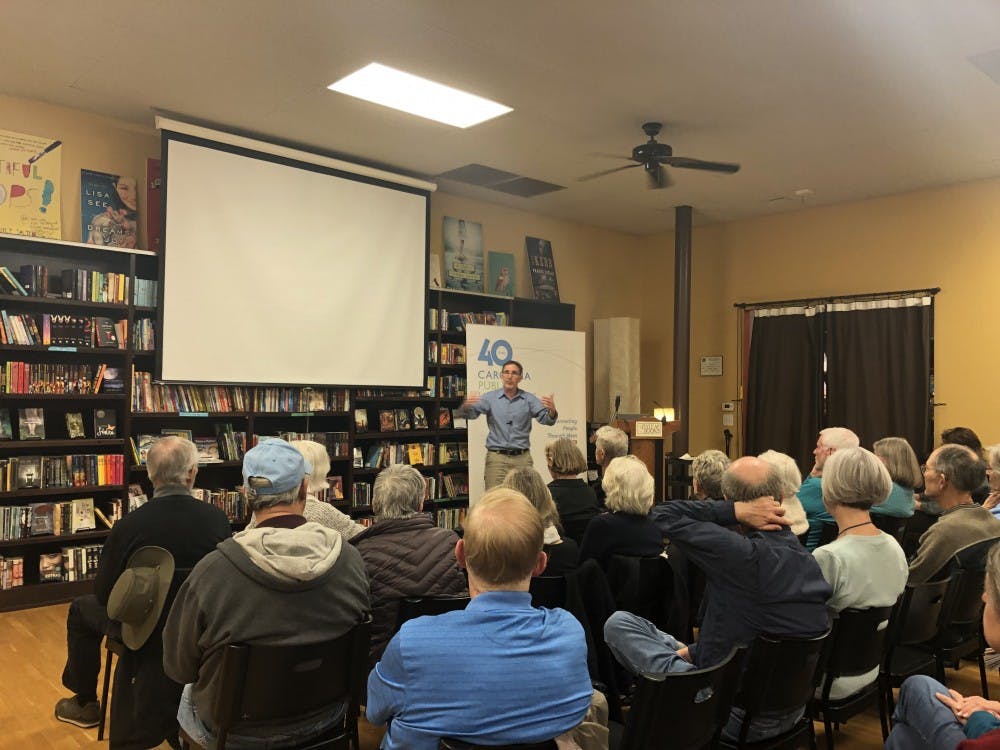Despite the prevalence of Islamophobia following Sept. 11, 2001, a new book by a UNC professor suggests there have been far fewer Muslim terrorists than Americans had anticipated.
Sociology professor Charles Kurzman presented his research on this topic on Tuesday at Flyleaf Books. The lecture was a part of Carolina Public Humanities’ Humanities in Action series.
Executive director of Carolina Public Humanities and Humanities in Action hostMax Owre said the series consists of about 10 lectures every semester. This semester, the series is centered around controversial topics such as race, gender and politics.
Kurzman just published the second edition of his book “The Missing Martyrs: Why Are There So Few Muslim Terrorists?” in late 2018. The first edition was published in 2011, a decade after the 9/11 terrorist attacks.
“There is less terrorism than we were bracing ourselves to expect in the wake of Sept. 11, 2001,” Kurzman said. “You’re probably too young to remember, but many experts worried that we were on the brink of new era when mass casualty terrorist attacks would be the new normal.”
Kurzman said this is not the case. The first edition of his book uses the aftermath of 9/11 as a case study to show the evidence that Islamic terrorism did not occur at the scale or the frequency experts predicted.
The second edition is updated to include the age of the Islamic State group, also known as ISIS. Just as experts were proven wrong in their theory that 9/11 would spark the rise of Islamic terrorist attacks, Kurzman said ISIS did not inspire a wave of “do-it-yourself” terrorist attacks around the world on the scale they feared.
He said liberal Islamic movements put in place to mobilize political democracy and human rights are major reasons why there are fewer Muslim terrorists than experts predicted there would be in the wake of both 9/11 and the Islamic State.
“It discusses the anti-terrorist messages of virtually every Islamic scholar in the world,” he said. “And the fact was they issued against terrorism.”




